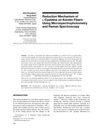
Sensory neuron and Merkel-cell changes in the skin happen independently during normal skin maintenance.

Sensory neuron and Merkel cell changes in the skin happen independently during normal skin maintenance.

Sensory neurons and Merkel cells remodel at different rates during normal skin maintenance.

Sensory neuron and Merkel cell changes in the skin happen independently during normal skin maintenance.
 January 2023 in “Dermatologic Therapy”
January 2023 in “Dermatologic Therapy” The nutritional supplement Pilopeptan® WOMAN improved hair growth and thickness in women with hair loss.
Hairlessness in mammals is due to complex genetic changes in both genes and regulatory regions.
March 2023 in “Anais Brasileiros De Dermatologia” Topical minoxidil is the best-supported treatment for female hair loss, but personalized plans are needed.
Targeting CXXC5 and GSK-3β may help treat male pattern baldness.
October 2022 in “Frontiers in Bioengineering and Biotechnology” Bioengineered nanoparticles can effectively treat hair loss by targeting specific enzymes and receptors.
Protein profiling of forehead skin can help distinguish between frontal fibrosing alopecia and androgenetic alopecia.
September 2022 in “Applied sciences” Combining micro-needling, LED therapy, and growth factors with Finasteride® significantly improves hair growth.

Keratin hydrogels from human hair show promise for tissue engineering and regenerative medicine.

Human hair keratins can be turned into useful 3D biomedical scaffolds through a freeze-thaw process.
 2 citations,
August 2012 in “Journal of the American Academy of Dermatology”
2 citations,
August 2012 in “Journal of the American Academy of Dermatology” Two patients with the same genetic mutation had both blistering skin and easily pulled out hair.
 April 2018 in “Journal of Investigative Dermatology”
April 2018 in “Journal of Investigative Dermatology” Both Th1 and Th2 immune responses are increased in alopecia areata, with Th2 response more strongly linked to how severe the disease is.
 November 2023 in “Advanced Science”
November 2023 in “Advanced Science” A specific hair protein variant increases the spread of breast cancer and is linked to worse survival rates.
 64 citations,
January 2010 in “The FASEB Journal”
64 citations,
January 2010 in “The FASEB Journal” Prolactin affects the production of different keratins in human hair, which could lead to new treatments for skin and hair disorders.
 47 citations,
January 2017 in “RSC Advances”
47 citations,
January 2017 in “RSC Advances” Keratin peptides can change hair shape gently without harsh chemicals.
 29 citations,
August 2005 in “Biopolymers”
29 citations,
August 2005 in “Biopolymers” L-cysteine slows down the breaking of bonds in hair due to electrostatic interactions.
 7 citations,
November 2022 in “Communications biology”
7 citations,
November 2022 in “Communications biology” Keratin injections can promote hair growth by affecting hair-forming cells and tissue development.
 30 citations,
April 2017 in “Journal of structural biology”
30 citations,
April 2017 in “Journal of structural biology” Human hair keratin fibers have a detailed nano-scale structure that changes with different conditions.
12 citations,
September 2013 in “BMC Biophysics” Keratin filaments' elasticity is influenced by their terminal domains and surrounding medium.
 7 citations,
May 2021 in “Applied sciences”
7 citations,
May 2021 in “Applied sciences” Proteins like BSA and keratin can effectively style hair and protect it, offering eco-friendly alternatives to chemical products.
 24 citations,
November 2015 in “Scientific reports”
24 citations,
November 2015 in “Scientific reports” Human hair has a new region with ordered filaments and the cuticle contains β-keratin sheets.
 September 2023 in “Journal of Natural Fibers”
September 2023 in “Journal of Natural Fibers” Drying hair with a microfiber towel better maintains hair strength and structure than using a cotton towel or blow-drier.
 January 2015 in “Turkiye Klinikleri Journal of Dermatology”
January 2015 in “Turkiye Klinikleri Journal of Dermatology” Peripilar keratin casts are a helpful sign for diagnosing traction alopecia.
 26 citations,
July 2012 in “Biochimica et Biophysica Acta (BBA) - General Subjects”
26 citations,
July 2012 in “Biochimica et Biophysica Acta (BBA) - General Subjects” The review found that different stem cell types in the skin are crucial for repair and could help treat skin diseases and cancer.
 9 citations,
January 2015 in “Current problems in dermatology”
9 citations,
January 2015 in “Current problems in dermatology” Scientists have found specific genes linked to different hair loss conditions, which could lead to new treatments.
 December 2021 in “Benha Journal of Applied Sciences”
December 2021 in “Benha Journal of Applied Sciences” Higher Claudin 3 levels in the blood are linked to more severe alopecia areata.
 124 citations,
October 2019 in “Frontiers in Immunology”
124 citations,
October 2019 in “Frontiers in Immunology” Janus kinase inhibitors are promising treatments for autoimmune skin diseases like eczema and psoriasis.























